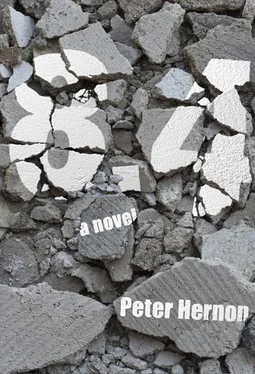“The total death toll in the country stands at 130,000 and climbing, but no one really knows,” Greenland said. “Disaster officials are sure of only one thing—that the numbers will go much higher. A big problem right now is finding the bodies.”
As he listened, Ross slowly massaged his temples, trying to alleviate a crushing headache. He knew there was no way to put human losses like that in perspective. They were unprecedented in the United States.
Continuing her grim assessment, Greenland said, “We’ve already talked about command and control in the damage zone. For all practical purposes, civil authority has collapsed. Army and National Guard units are providing what security exists under your previous declaration of martial law.”
Ross nodded. He’d recently boned up on President Lincoln’s decision to impose martial law during the Civil War and wondered if the man he considered the country’s greatest president had gone through as much agony before he sent federal troops into so many American cities. Ross had hated to do it, but felt he had no choice. Killing and looting had broken out on a mammoth scale. In a single neighborhood in Little Rock—Geyer Springs—federal troops had shot and killed nearly thirty people who’d been caught stealing items from smashed homes and stores. That’s what a shoot-to-kill order meant. And that awful body count was from just a single neighborhood.
Less than an hour earlier, Greenland had told Ross privately that the military, stretched dangerously thin, wouldn’t be able to respond to even a moderate international challenge.
Every available soldier on the East Coast and in the South had been pressed into earthquake duty. Unless the situation improved—and that appeared unlikely—they’d have to call in troops from the far West. They’d start with Fort Riley in Kansas. The 1st Infantry Division there had already been put on full alert. They could also bring in Marine units from Camp Pendleton.
“The basic necessities—food, water, medical care—are virtually nonexistent in the quake zones,” Greenland said.
The images from the cities that had sustained the heaviest damage all seemed to merge together into one overwhelming tableau of grief and destruction.
And you’re in charge, Ross kept telling himself. You’re supposed to know how to handle this. Tell people what to do. Suggest options. Keep their spirits up.
He knew he was failing badly on every front.
His national security adviser was talking about hospitals. In the heart of the earthquake zone, most of them had been destroyed. Ross looked at a close-up of Central Hospital in Little Rock and closed his eyes. It had the largest neonatal unit in the state. The building had split in two.
“Heating and fuel oil are already being rationed throughout the East Coast,” Greenland continued. “The situation there will be critical in three or four more days.”
Ross stopped her. “That’s enough, Margaret,” he said, gently touching her on the shoulder. She nodded and turned off the machine. She looked grateful to sit back down.
The president faced the gathered seismologists. “We’re going to have another quake, aren’t we?”
“Almost certainly,” Elizabeth Holleran said. The evidence she’d found in the fissure had removed any of her lingering doubts. “The only question is when and how big.”
“Anyone here agree with Doctor Holleran?”
John Atkins and Walt Jacobs raised their hands. Holleran had uncovered irrefutable evidence that couldn’t be denied. And Atkins was proud to go on record supporting her. They were taking a huge professional risk. He had few doubts they’d be proven right. But at what incredible cost?
It was an overpowering feeling of both intense excitement and fear. They were way out in front on this.
The five other seismologists in the room were hesitant to offer an opinion, much less a definite yes or no.
“What about you, Doctor Weston?” Ross asked.
“I’m sorry, Mister President,” Weston said, shaking his head. “I refuse to speculate.”
“After what you’ve just seen and heard, you’re not convinced?”
“No, sir. I’m not,” Weston said. “I’m still not sure the quakes we’re having aren’t part of a normal aftershock pattern.”
Ross was trying to be agreeable as he kept probing, pushing. “Then let me ask you this: what do you think will happen if we get another magnitude 8 quake on the New Madrid Fault?”
He read the look in Weston’s eyes and in the eyes of the others. He’d seen it often enough, the fear and uncertainty. He’d seen it in his wife’s eyes when the doctor met them in his office on that bright spring afternoon seven years ago and told them what they already knew. The tests were positive. She had breast cancer. He’d seen it in his own eyes earlier that morning when he looked at himself in the mirror.
“I’ll tell you what I think,” Ross said, giving way to the nightmare that had kept him awake every night for the last four. “Another quake would pretty much finish the Mississippi Valley. It would push us back to World War II productivity levels. Our economy would be in shambles. In many ways that’s already happened. Millions of Americans would be left totally on their own, without schools, medical care, even food or water. Without police protection.” He leaned over the broad conference table, supporting himself heavily with both hands.
Up close, Atkins was struck again by how tired the man looked. And yet his voice remained firm, decisive.
“This is a great country,” Ross said. “Our people have courage and resiliency. They’ll bounce back eventually. But we wouldn’t be the same United States.”
He looked at everyone in the room, locking in on their eyes, staring hard.
Atkins felt the power of the president’s gaze. He was exposing them to his deepest, most intimate fears.
Ross held them like that for a long time before he said, “Is there anything we can do to prevent that from happening?”
IT was late in the evening. Everyone was dragging. The president suggested they take a fifteen-minute break. He had a big urn of coffee and a platter of fruit and sweet rolls sent down from the White House kitchen.
Walt Jacobs took Atkins aside and whispered that he had something he wanted to tell him in private. They went into the hallway. Secret service agents and military aides watched them carefully as they walked down the long, brightly lit corridor and sat on an upholstered bench seat under a wall map of the Louisiana Purchase.
“My wife and daughter are dead,” Jacobs said. “They were trapped in our house. I found out yesterday.” He looked at Atkins and shook his head. “I’ve studied earthquakes since I was eighteen years old. I thought I understood them pretty well. I never thought one of them would kill my family.”
“Walt, my God, I’m so sorry,” Atkins said, putting his arm around his friend’s shoulder. “I had no idea. None of us did.” He couldn’t believe it. Jacobs had just kept on working as if nothing had happened. Atkins had suspected something was bothering him. His usually buoyant friend had seemed uncharacteristically moody, remote.
Jacobs suddenly got up and pounded his fists against the wall. The map print crashed to the floor, the glass dust cover shattering. He knocked over a lamp and staggered away sobbing.
Two Secret Service agents ran toward them. Atkins pushed one of them back as the agent reached out to grab Jacobs.
“No, let him go!” he shouted. He put an arm around his friend’s waist.
“I can’t do this anymore…. Can’t go on,” Jacobs said. “My wife’s dead, John. My daughter. I don’t give a fuck about another earthquake. I don’t care….”
He stood there with tears in his eyes. Atkins helped him sit down. Jacobs started to regain his composure.
Читать дальше












